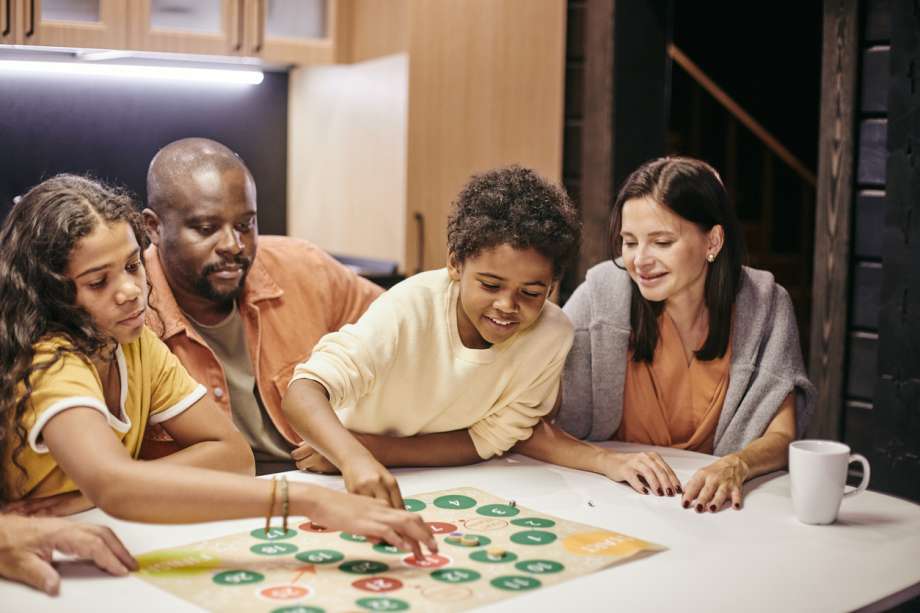The Family That Plays Together

The Family That Plays Together
You will probably have an easy time remaining connected to your youngster if you genuinely enjoy the video games, skateboarding, carnivals, shopping malls, arcades, and movies that are the lifeblood of this age group. If you're willing to serve as cub scout leader, coach T-ball, or sponsor a club at your tween's school, you will have a positive mutual involvement that can help keep your relationship strong. Carving out time for sit-down parent/tween conversations may not hold much interest for your child, but ask him to start a fire in the fireplace or make popcorn in preparation for a marathon game of Old Maid or Monopoly. That's tween heaven!
Question
I try to talk to my tween, but he never has anything to say. We're drifting apart. What should I do?
To strengthen your relationship, spend less time conversing and more time on joint activities. That can be anything from a game of Crazy Eights to a drive to the edge of town to see the stars.
See if you can involve your tween in your work by having him help out at your place of business or have him participate in your hobby. Even if he accompanies you to the spa but you don't work out together, you will continue to hold a central place in his life if he feels that it is a shared experience. Riding to the spa with the radio blaring and sending him to the pool to kill time until you're finished exercising doesn't count as togetherness! Try to talk in the car going and coming. Join him in the pool, if only briefly. Change and shower at the same time. Empty your gym bags into the laundry once you're back at home together. In other words, actively look for things you can do together.
If you and your child have no common interests, this is a good time to search for a new hobby, activity, or pastime that you both enjoy. For instance, if you are both music fans, perhaps you can browse the music section of department stores together and learn to make your own music CDs even though you like jazz and your child likes hip-hop. If you've always dreamed of visiting Europe, pick up travel magazines at the library or brochures at a travel agency, and invite your tween to fantasize along with you. When planting a garden, solicit your tween's input about what to grow, have him help shop for the seeds, and make decisions together about what to plant where. If you've wanted to build a real car from a kit, collect information about automobile kits, share it with your tween, and discuss the pros and cons of the various brands, even if you never do make the investment of money and time to actually build one.
Quantity versus Quality
It's impossible to have quality time without a sufficient quantity for your child to feel that you are truly present in her life. Since most parents only talk to their tweens fifteen minutes a day, you can double your contact just by carving out fifteen minutes more to spend together each day. Turn off the TV and take a fifteen-minute walk or short bicycle ride together. Drop into your tween's bedroom and spend fifteen minutes chatting or simply hanging out before she goes to sleep at night. If you're out of town, call home and talk to your tween on the telephone for fifteen minutes. Vow that you will not criticize, admonish, reprimand, or even ask questions during these special conversations. Restrict yourself to listening attentively.
Only give advice when your child asks for it or when you get her permission first. To do that, specifically ask if your child would like some advice and wait until she gives an affirmative reply before plunging ahead. If you feel obliged to pass on some parental wisdom, share stories about how you and other people you know dealt with similar issues during their childhoods. Remember to provide time for your child to respond, enduring long silences if necessary. Tweens take longer to formulate their thoughts and to find the words to articulate their ideas than adults. Whenever possible, let your tween be the one to end the conversation.